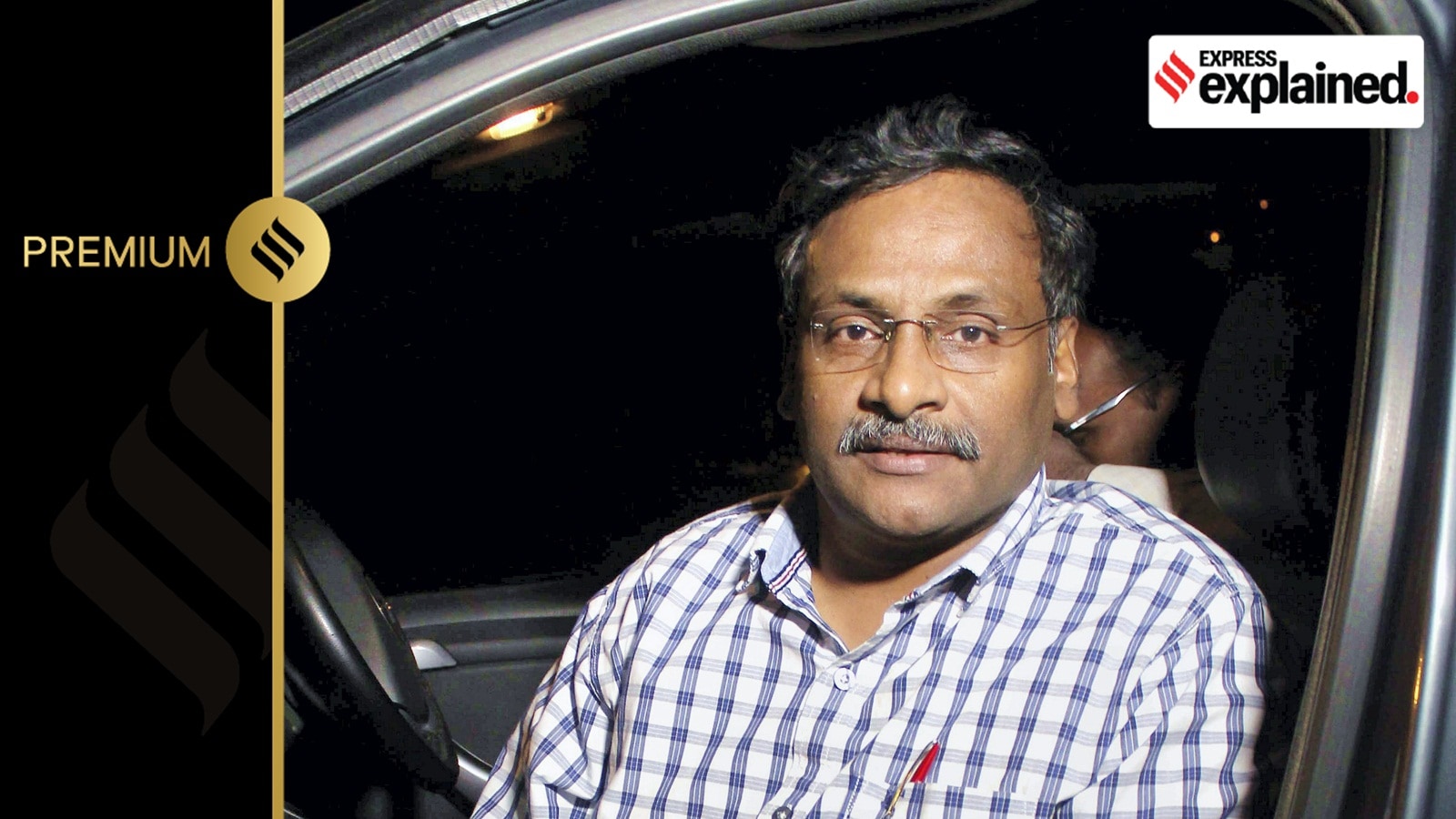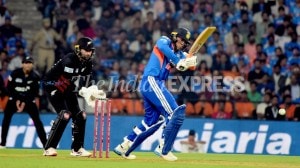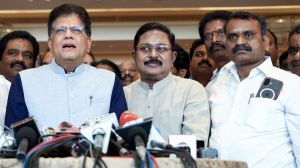Underlining that holding a trial under the stringent anti-terror law without adhering to procedural requirements would amount to a “failure of justice”, the Nagpur Bench of the Bombay High Court on Tuesday reversed a trial court verdict and acquitted former Delhi University professor G N Saibaba. This is the second time an appellate court has emphasised that the prosecution did not follow due procedure in the case.
A division Bench of Justices Vinay G Joshi and Valmiki SA Menezes reversed the trial court order of conviction in Maharashtra’s Gadchiroli. The verdict was reserved by the HC in September last year, following directions from the SC to hear the matter afresh.
Why was the case heard afresh?
In October 2022, a bench of Justices Rohit B Deo (who resigned last year) and Anil Pansare of the Bombay HC had acquitted Saibaba and five others on the ground that the state did not satisfy a crucial procedural safeguard — sanction to prosecute and an independent review of the sanction before stringent terror charges are invoked.
“While the war against terror must be waged by the State with unwavering resolve, and every legitimate weapon in the armoury must be deployed in the fight against terror, a civil democratic society can ill afford sacrificing the procedural safeguards legislatively provided, and which is an integral facet of the due process of law, at the altar of perceived peril to national security,” the Bench had observed, adding that the sanction was not a “ritualistic formality”.
Section 45 of the UAPA states that no court shall take cognisance of an offence under Chapter IV & V (that deal with terrorism) “without the previous sanction of the Central Government or the state government, as the case may be…”
However, on the evening of the Bombay HC judgement on October 14, the state government mentioned the matter before Justice DY Chandrachud, and sought a stay. Then CJI UU Lalit in a rare and unusual decision constituted a special Bench of Justices MR Shah and Bela Trivedi, who sat on a Saturday morning and suspended the Bombay HC ruling.
Story continues below this ad
Later, on April 19, 2023, a Bench headed by Justices Shah and CT Ravikumar sent the case back to the HC to consider all issues raised by the state and decide the case afresh on merits.
What did the HC rule on the second occasion?
Like in the first instance, the HC emphasised the need to adhere to procedural safeguards. However, it also evaluated the case on merits, going through the evidence. On both accounts, the HC ruled in favour of the accused.
For the five accused excluding Saibaba, the HC said that the sanction obtained was “invalid” since the reviewing authority did not apply its mind independently. The ruling states that “besides a half page communication to go ahead, there is nothing on the part of the authority to demonstrate its consideration.”
The first sanction for the five accused, who were arrested in 2013, was granted on February 15, 2014. The second sanction, for the prosecution of Saibaba, was received on April 6, 2015, after charges were framed.
Story continues below this ad
“This was a fundamental error which has invalidated cognisance as being without jurisdiction. Defect of this kind is fatal and cannot be cured with the aid of general provisions of the Code. It must, therefore follow that the Trial Court could not have taken cognizance of the offence punishable under the provisions of the UAPA for want of valid sanction,” the Court said.
For Saibaba, the record showed that when the trial court framed the charges, there was no sanction. Without a valid sanction, the trial court could not have heard the case since it essentially lacked jurisdiction.
This, the HC said, was “a defect which goes to the root of the matter and it is not one of the curable defects.” The prosecution had argued that this issue could have only been raised at the time of framing of charges, not in the appeal stage, and in any case, under the Code of Criminal Procedure, this defect could have been cured by obtaining a sanction subsequently.
“To sum up, the first sanction qua accused Nos. 1 to 5 was not based upon the “independent review of evidence” carried by the Director of Prosecution and sanction qua accused No.6 G.N. Saibaba was not in-existence at the time of taking of cognizance by the special Court despite a statutory bar. Therefore, the very foundation for initiation of prosecution being not in consonance with law, the order of taking of cognisance by the Special Court vitiates the entire further proceedings,” the court ruled.
Story continues below this ad
Essentially, this shows that the bar for procedural safeguards must be higher for the state when it invokes grave charges against a citizen.
Other procedural issues included the fact that while the UAPA requires the state to designate a police officer equal or above the rank of a Deputy Superintendent of Police to arrest, search and seize property, Saibaba was arrested by an officer not specially designated to do so by the state.
On the offence itself, the Court said that the state has submitted that no incident of violence occurred or is even alleged to have occurred. “There is no material to infer the conspiracy since the prosecution has not spelt out as to what has been conspired to be done by the accused, besides a vague allegation of conspiracy to wage war against the Government,” the court said.
The government had argued that under the UAPA, if certain articles such as explosives are found on the site of the offence, terror charges must be presumed by the court and the burden of proof shifts on the accused to show he was not involved in terror activities. The state claimed the recovery of electronic evidence and pamphlets from Saibaba’s house would be covered for this presumption, but the court disagreed.
Story continues below this ad
“…The residuary provisions are to be read in context with the bombs or explosive or any article of hazardous nature and certainly not pamphlets or communication which have no relevance with the cause or likelihood to cause the result as stated in Sub-clauses (i) to (iv) of Section 15(a) of the UAPA,” the court held.









































